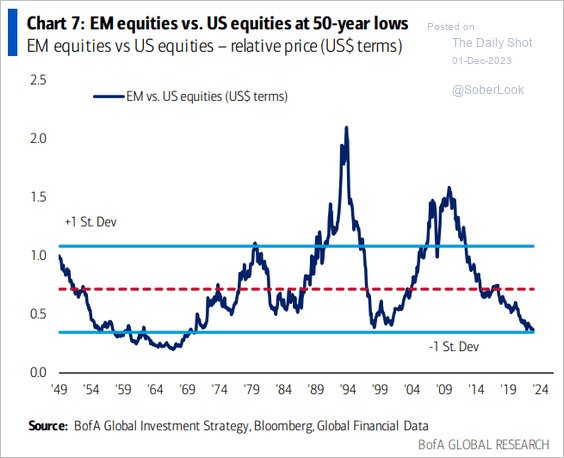Emerging Markets vs. U.S. Markets
As the global economic landscape continues to develop, many investors are considering the benefits of investing in emerging markets compared to investing in the U.S. markets. Despite the appeal of the booming U.S. economy and stock market, emerging markets often offer more attractive returns and greater opportunity for investors who are willing to accept a bit more risk.
Emerging markets, or developing countries, offer great potential for investors since they are rapidly growing markets which offer more room for growth than developed markets. These markets are attractive to investors due to their low valuations, high growth potential, and diversification benefits. Emerging markets have grown rapidly in recent years, offering investors opportunities to benefit from the rapid economic growth and increased returns that these countries offer.
The U.S. markets, on the other hand, are considered the largest, most developed, and most liquid of all markets. The U.S. markets have consistently shown strong performance due to its stability and deep liquidity. Although they may not offer the same returns or potential growth as emerging markets, some investors prefer this type of market for its steadiness and liquidity.
When looking at the differences between investing in emerging markets and the U.S. markets, investors must consider the positives and negatives of each option. Emerging markets offer the chance for higher returns and faster growth, but may also bring a greater risk and instability. The U.S. markets offer more stability and liquidity, but also bring lower returns and more limited opportunities for growth.
Overall, both emerging and U.S. markets have a great potential for investment returns. However, each comes with its own set of risks and deserves careful analysis before investors choose which option best suits their investment goals. Ultimately the decision to invest in either market depends on the investor’s goals, risk tolerance, and overall investment strategy.
